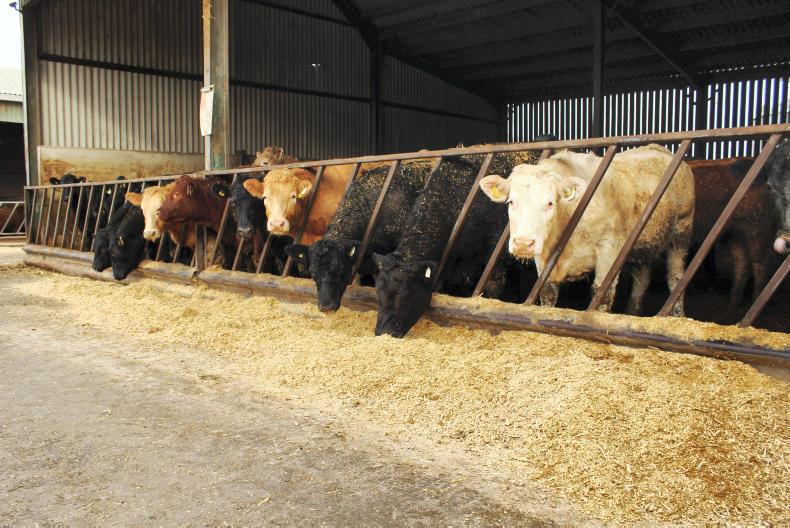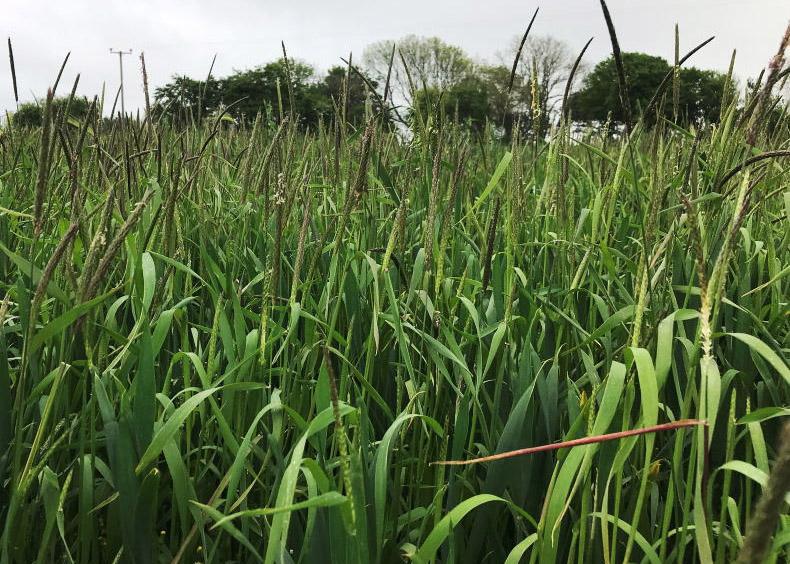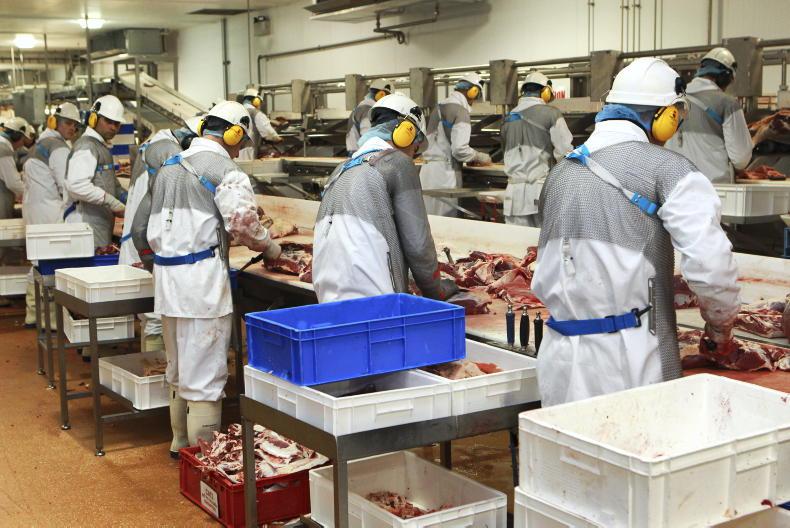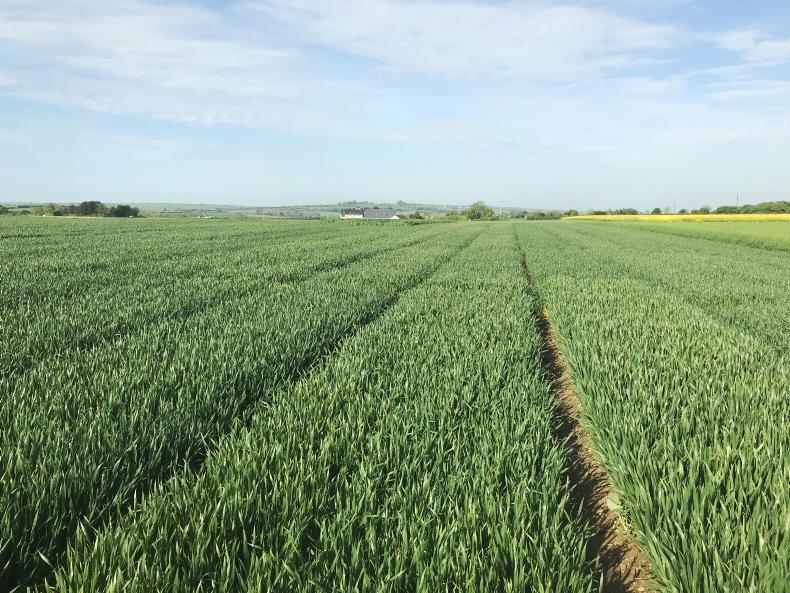On Fionbharr’s farm cows are a mixture of traditional and continental breeding, with Angus, Limousin and Charolais bulls used in recent years. All breeding stock have moved to spring calving, with 102 cows expected to calve down in 2019.
Limousin-sired, dairy-bred heifer calves have been purchased to maintain a nucleus of milk within the herd. With a stocking rate of 1.81 CE/Ha, there is scope to expand cow numbers further.
In 2018, the dry summer impacted heavily on the farm, with Fionbharr having to feed meal throughout the dry period.
Performance and improvements
Considering the difficulties encountered on Fionbharr’s farm due to drought, stock performed well – with steers finished at 365kg carcase weight at 22.5 months.
The target is to get steers finished between 360kg to 380kg carcase weight by 20 months. For this to happen, performance from grass must improve during the second grazing season for store cattle.
Maintaining the structured paddock system on-farm is critical to ensure more liveweight can be achieved from grass.
All cows have been outwintered on Swift, as opposed to sacrifice areas, which has increased the amount of grass available for early turnout. Fionbharr has already taken advantage of the mild February, with some younger stock at grass.
Fionbharr wishes to keep more continental-type cattle on-farm and breeding will reflect this, with a new Charolais stock purchased with terminal EBVs in the top 15% of the breed.
Maternal AI sires are used on early calving cows and heifers to provide replacements for the herd.
Read more
Watch: spring calf health series - calving the cow in a backwards delivery
Higher feed costs impact on bull beef systems
On Fionbharr’s farm cows are a mixture of traditional and continental breeding, with Angus, Limousin and Charolais bulls used in recent years. All breeding stock have moved to spring calving, with 102 cows expected to calve down in 2019.
Limousin-sired, dairy-bred heifer calves have been purchased to maintain a nucleus of milk within the herd. With a stocking rate of 1.81 CE/Ha, there is scope to expand cow numbers further.
In 2018, the dry summer impacted heavily on the farm, with Fionbharr having to feed meal throughout the dry period.
Performance and improvements
Considering the difficulties encountered on Fionbharr’s farm due to drought, stock performed well – with steers finished at 365kg carcase weight at 22.5 months.
The target is to get steers finished between 360kg to 380kg carcase weight by 20 months. For this to happen, performance from grass must improve during the second grazing season for store cattle.
Maintaining the structured paddock system on-farm is critical to ensure more liveweight can be achieved from grass.
All cows have been outwintered on Swift, as opposed to sacrifice areas, which has increased the amount of grass available for early turnout. Fionbharr has already taken advantage of the mild February, with some younger stock at grass.
Fionbharr wishes to keep more continental-type cattle on-farm and breeding will reflect this, with a new Charolais stock purchased with terminal EBVs in the top 15% of the breed.
Maternal AI sires are used on early calving cows and heifers to provide replacements for the herd.
Read more
Watch: spring calf health series - calving the cow in a backwards delivery
Higher feed costs impact on bull beef systems










SHARING OPTIONS